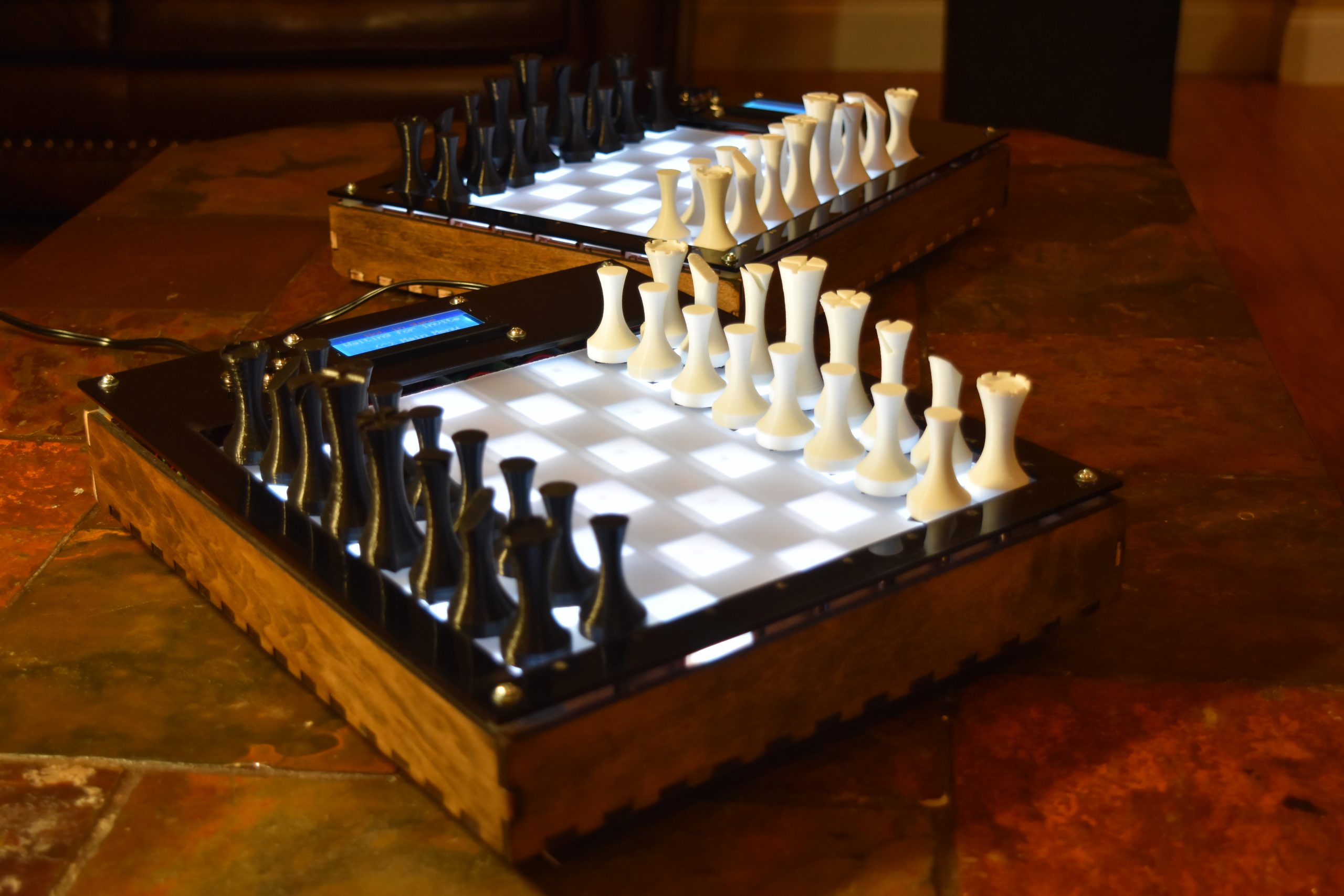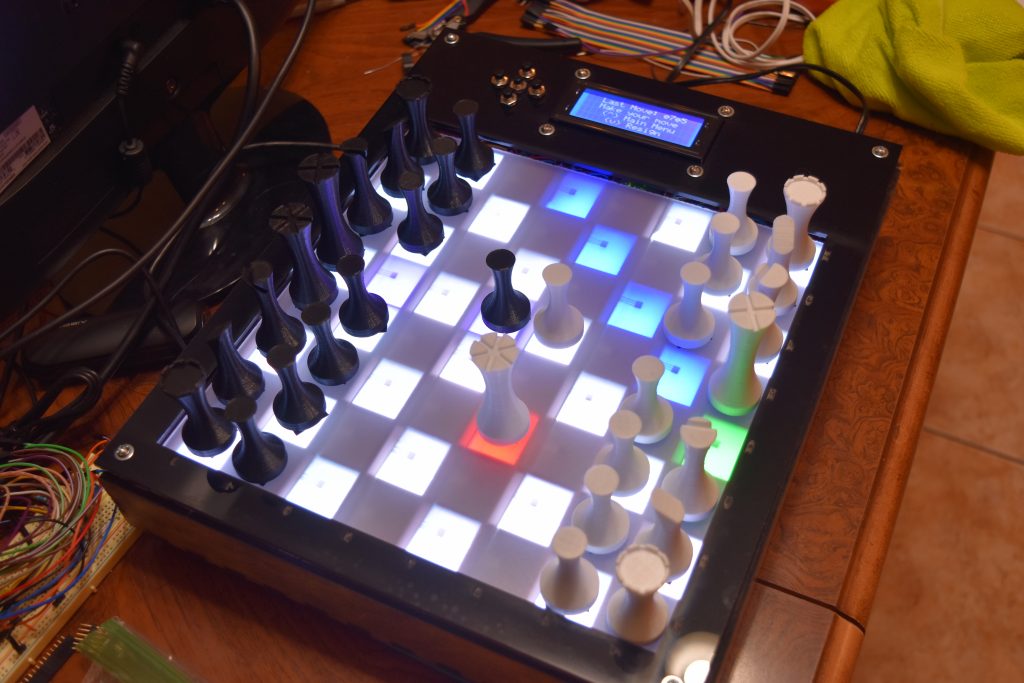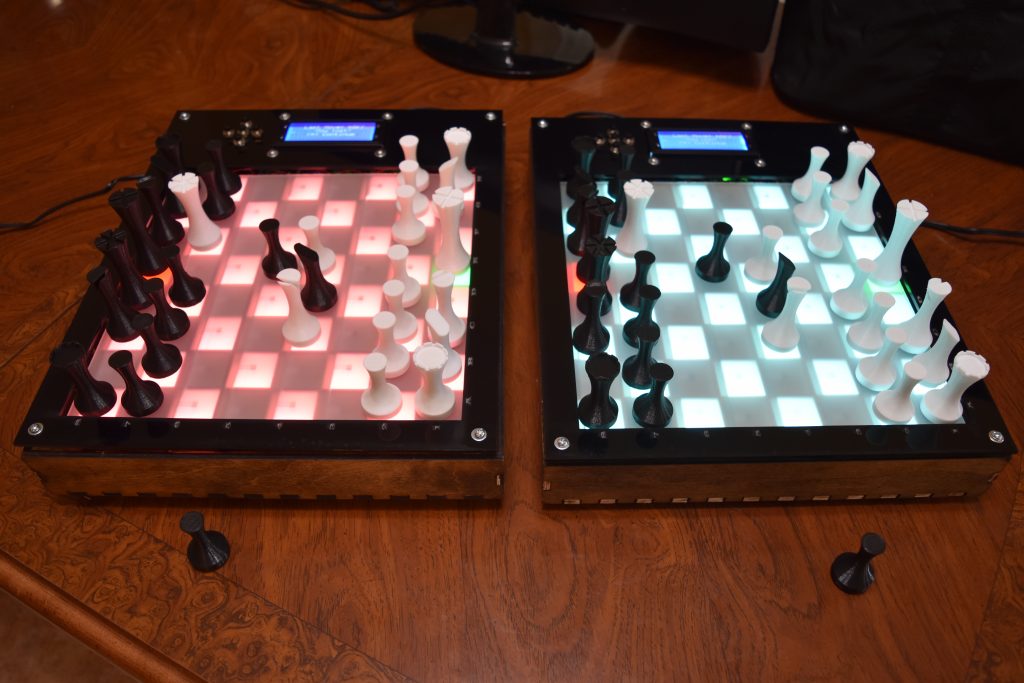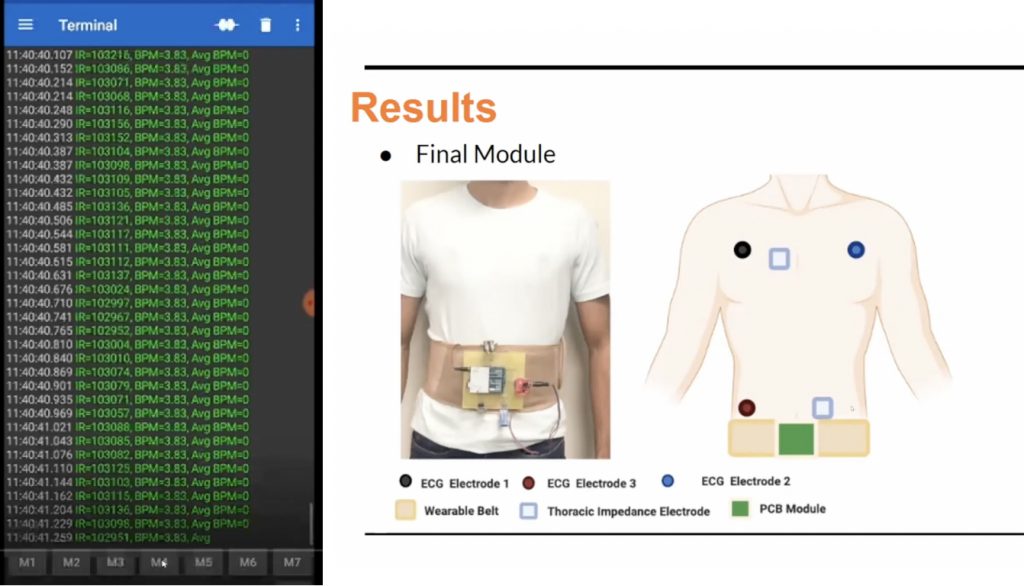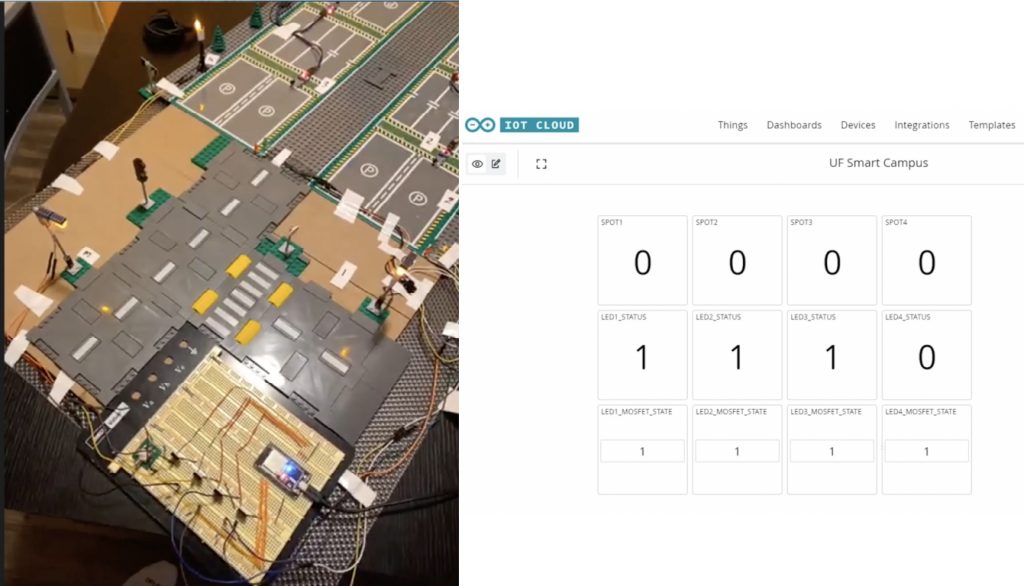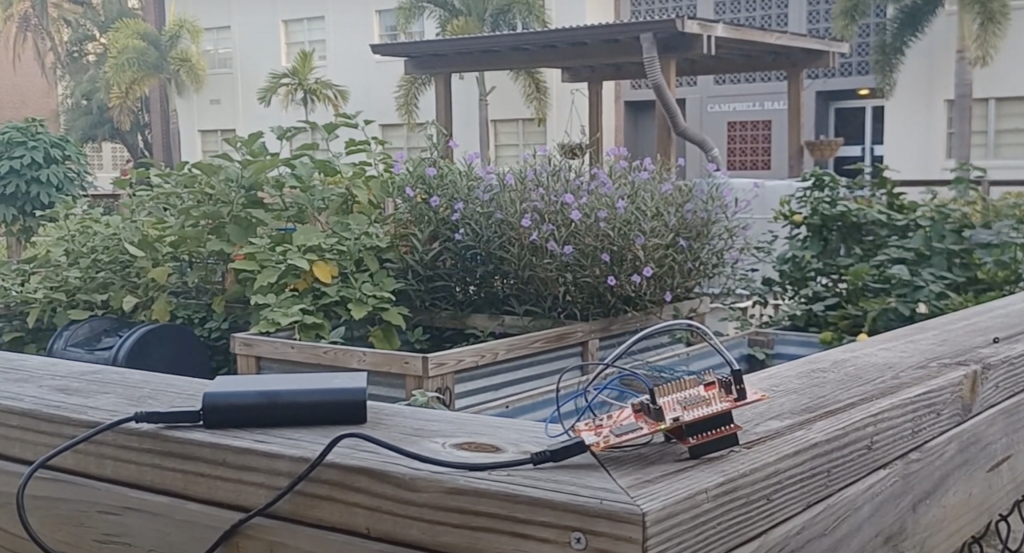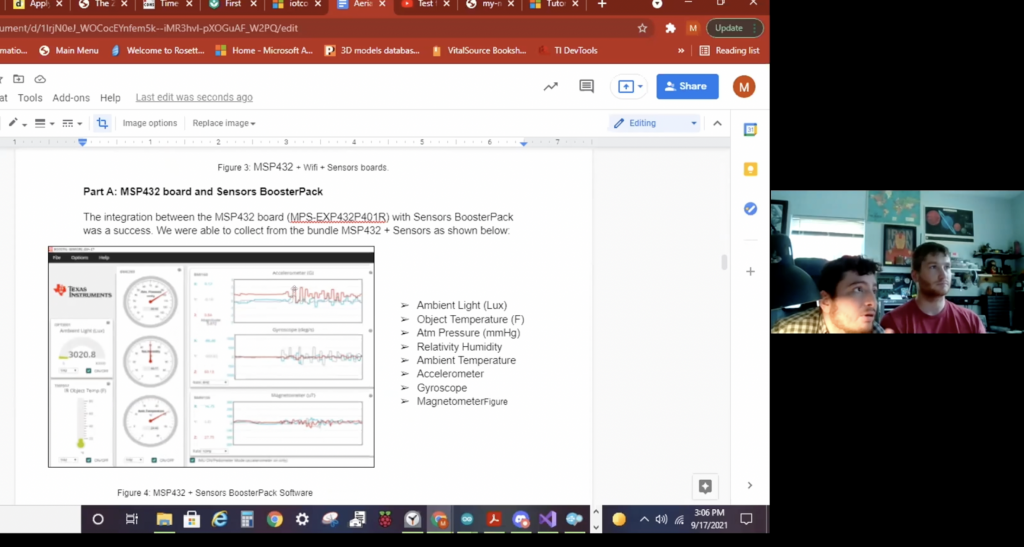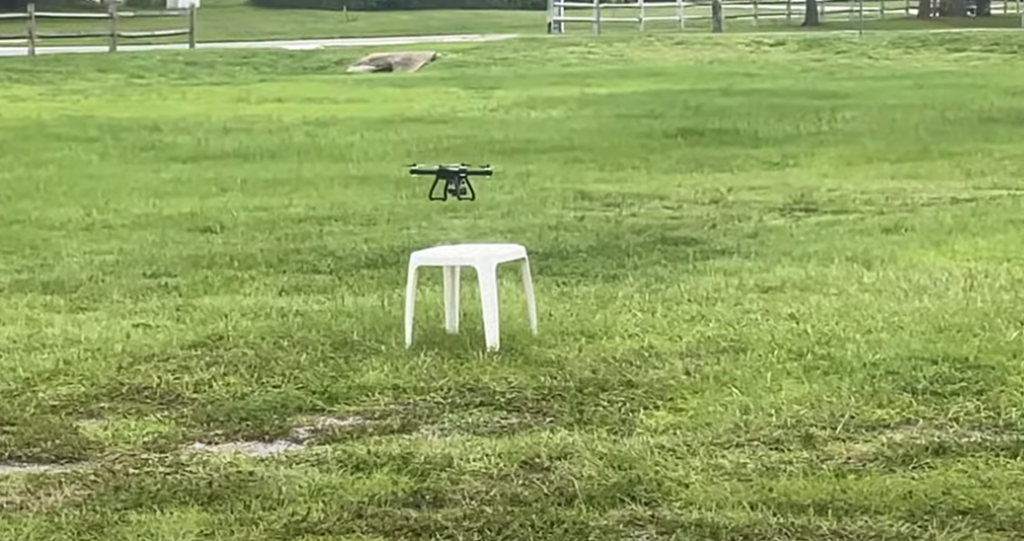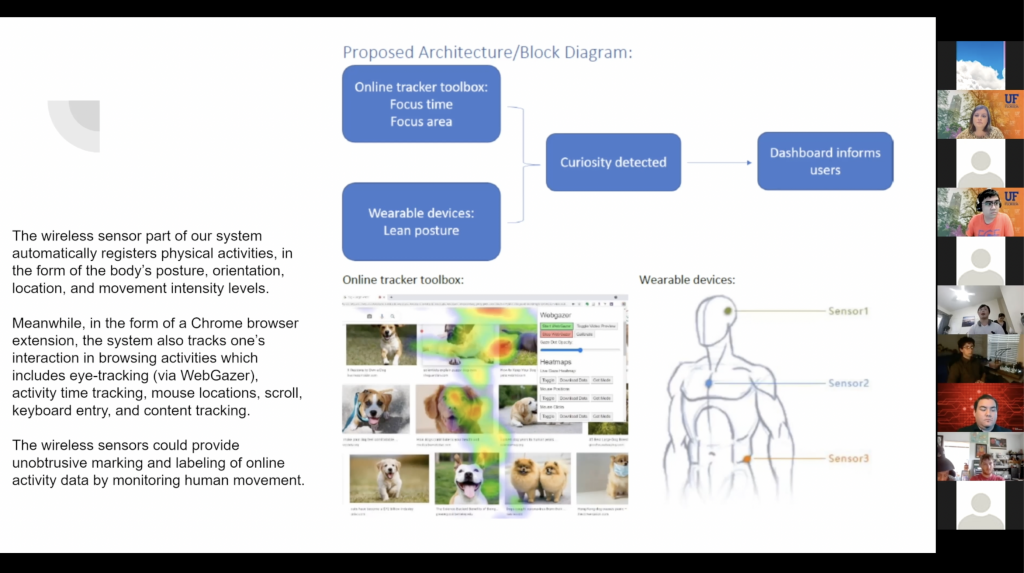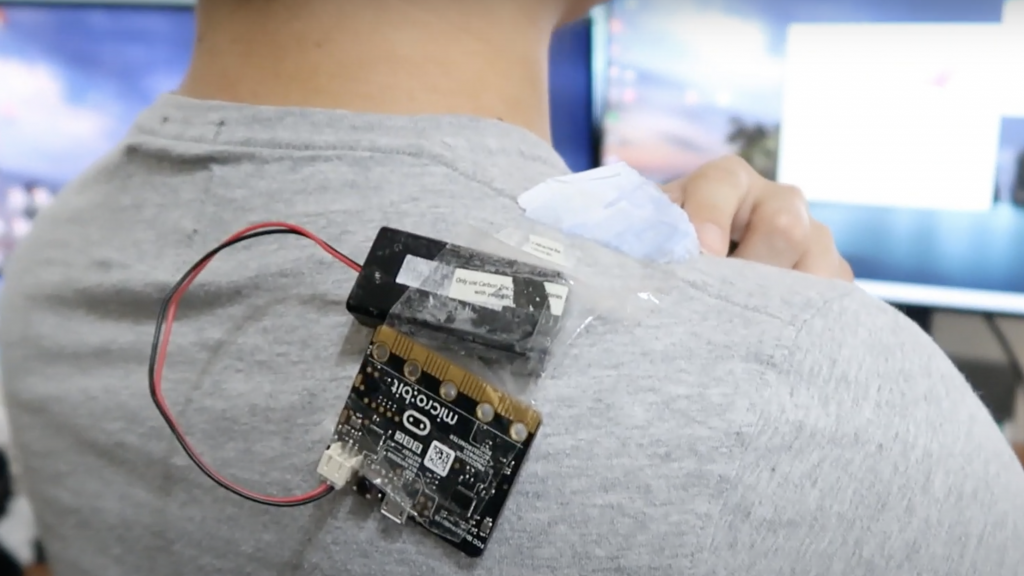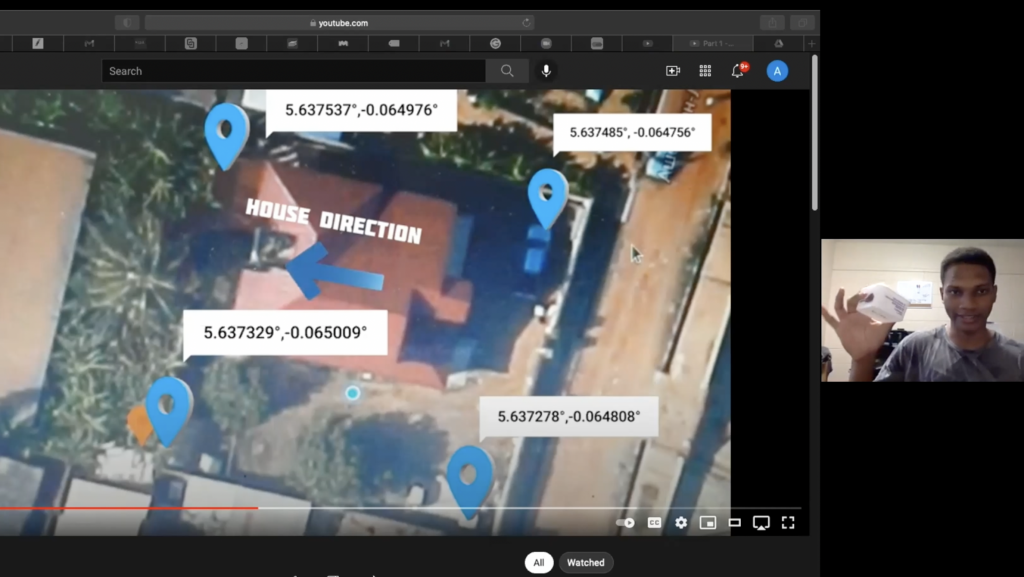The first annual student Internet of Things (IoT) Design Competition recently wrapped up after nearly two months of competition. The national competition, hosted by the IoT Students Club at University of Florida, required teams to design, build, and demonstrate the functionality of an IoT edge device to solve a real-world problem. A total of ten teams from around the US took part, competing for $6,000 in cash and prizes. Each team was provided with a starter kit including a Texas Instruments LaunchPad, Sensor Module, and USB battery pack. The competition was sponsored by Texas Instruments, Microsoft, and the Warren B. Nelms Institute for the Connected World.
“The goal for launching the IoT Design Competition was to ignite students’ interest in smart and connected system design and stimulate their creative thinking on what these systems can do to change the world around us,” said Dr. Swarup Bhunia, Director of the Warren B. Nelms Institute and professor in the Department of Electrical and Computer Engineering.
With their project, Remote Chess, University of Florida Computer Engineering undergraduate students Dylan Ferris and Austin Welch won first place in the competition. Inspired by their desire to connect with friends across great distances, Ferris and Welch developed a pair of connected chessboards that create a seamless online multiplayer experience. The boards can also be used as a learning tool for players who don’t know all the rules of chess yet.
“Working on this project was an incredible experience that truly showed me how much I have developed during my time in college, not only as a developing engineer but as a person as well,” Welch said. “Just the fact that we were able to take this idea, something that only existed within our minds, and bring it to life was something I only could dream of when I was younger.”
Sheikh Muhammad Asher Iqbal, a PhD student at Florida Atlantic University, won second place with his project, A Point of Care healthcare wearable device for monitoring Heart Failure. The objective of the wearable device is to monitor parameters, such as heart rate, that are significant to the diagnosis and monitoring of heart failure.
Third place went to University of Florida teammates Larry Rentz, Quadri Abiru, and TJ Thomas for their project, UF Smart Campus. They created a scaled version of the University of Florida campus with IoT features concerning traffic management like parking, infrastructure, and vehicular/pedestrian safety.
The judging panel included six industry professionals with diverse experience and knowledge of IoT: Kostas Amberiadis, Research Engineer at Intel; Abhishek Basak, Senior HW Security Architect at NVIDIA; Mark Easley, University Marketing Manager at Texas Instruments; Atul Prasad Deb Nath, Senior Engineer at Qualcomm; Vaishnavi Ranganathan, Senior Researcher at Microsoft; and Debasmita Shaw, Founder & CEO of Diverse Software Solutions, Inc.
“It was very interesting to see the students put together a wide range of projects with the kits provided to them,” Ranganathan said. “This is a great way to inspire the students into getting their hands dirty and start building things from scratch.”
“It was impressive to see the results of this competition, especially as students were still working through the constraints and challenges of the pandemic. A big thanks to all the participants and staff for their efforts to bring this design experience to life,” Easley said.
The competition phase lasted approximately two months over the summer and culminated in a live demonstration in front of the judging panel this September. The projects were scored on criteria such as operability of the device, novelty and creativity of the application, complexity of the design, and effective use of IoT technology.
“We’re impressed to see how the participating teams took up the challenge and came up with innovative ideas on building IoT devices for unique use cases,” Bhunia said. “Several of these smart devices the student teams developed are highly promising and worthy of commercialization.”
“This competition was a true test of my skills and everything I’ve learned thus far in college,” Ferris said. “It let me apply the project management and leadership skills I thought I’d never use. It taught me the true challenges of creating a fully functioning product; anyone can make a prototype 80% functional, but it’s the last 20% that truly takes the most time and effort. The chance to take a project that far comes once every never, and I’m so glad I took that chance. I’m grateful for the opportunity to participate in this competition, and the experience it has taught me in applying everything I’ve learned to the fullest.”
The student IoT Design Competition is an annual event. The next competition will be starting June 2022. Check the Event Page for the latest updates.
Other student submissions:
Jibaro Urban Farming Assistant Video
